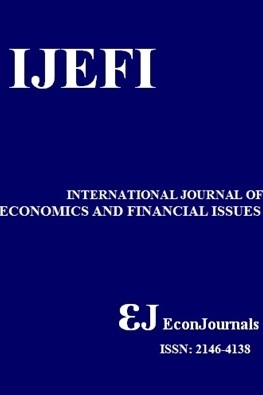A Generalized Autoregressive Conditional Heteroscedastic Approach for the Assessment of Weak-form-efficiency and Seasonality Effect: Evidence from Mauritius
A Generalized Autoregressive Conditional Heteroscedastic Approach for the Assessment of Weak-form-efficiency and Seasonality Effect: Evidence from Mauritius
Weak form efficiency, Seasonality effect GARCH model,
- Başlangıç: 2011
- Yayıncı: İlhan ÖZTÜRK
Foreign Investment Promotion Analysis in Sultanate of Oman: The Case of Dhofar Governorate
The Political Economy of Financial Regulation Policies Following the Global Crisis
Board Characteristics and Managerial Overconfidence in an Emerging Market
Shokrollah KHAJAVİ, Golamreza DEHGHANİ
Sustainability of Current Account Deficit in Turkey (1989–2014)
Zubeyir Turan, Doğan Barak, Ayberk Nuri Berkman, Aslıhan Nakiboglu
Wakilat Olabisi Balogun, Jauhari B. Dahalan, Sallahuddin B. Hassan
Natalia Victorovna Kuznetsova, Ekaterina Victorovna Kocheva, Nikolay Anatolievich Matev
Gulf Cooperation Council Stock Returns and the Effect of Domestic Monetary Policy Shocks
Rashid SBİA, Helmi HAMDİ, Bedri Kamil Onur TAS, Sahel Al ROUSANE
Nina POTEKHİNA, Yulia SHULİNİNA, Natalia KUZMİNA, Ludmila POTALİSİNA, İnessa SANNİKOVA
Nessrine HAMZAOUİ, Boutheina REGAİEG
